Review: DNA Checkpoints and Aluminum Tolerance ($)
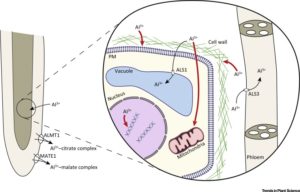 Aluminum (Al) toxicity is an important agricultural problem, limiting crop production globally. Al toxicity causes a reduction in nutrient uptake, resulting in nutritional deficiency and leading to an overall reduction in shoot biomass and crop yield. Eekhout et al. discuss Al toxicity and strategies to develop Al-tolerant plants. The identification of Al hypersensitive mutants as well as three other mutant genes that reverse the hypersensitivity of the former reveals that the DNA damage response (DDR) pathway plays a key role in Al tolerance. The discovery that DDR regulators actively stop root growth in response to Al toxicity not only pinpoints DNA as a primary target of internalized Al but also offers new strategies to engineer Al-tolerant crop plants. (Summary by Mather Kahn) Trends Plant Sci. 10.1016/j.tplants.2016.12.003
Aluminum (Al) toxicity is an important agricultural problem, limiting crop production globally. Al toxicity causes a reduction in nutrient uptake, resulting in nutritional deficiency and leading to an overall reduction in shoot biomass and crop yield. Eekhout et al. discuss Al toxicity and strategies to develop Al-tolerant plants. The identification of Al hypersensitive mutants as well as three other mutant genes that reverse the hypersensitivity of the former reveals that the DNA damage response (DDR) pathway plays a key role in Al tolerance. The discovery that DDR regulators actively stop root growth in response to Al toxicity not only pinpoints DNA as a primary target of internalized Al but also offers new strategies to engineer Al-tolerant crop plants. (Summary by Mather Kahn) Trends Plant Sci. 10.1016/j.tplants.2016.12.003


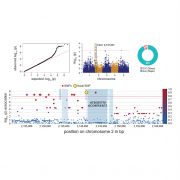
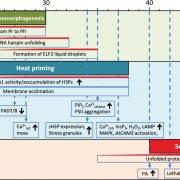
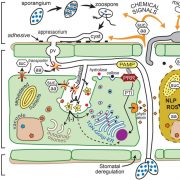
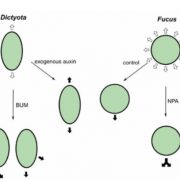
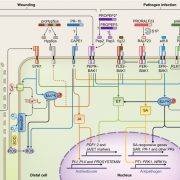
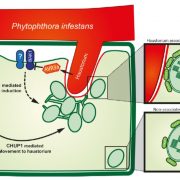


Leave a Reply
Want to join the discussion?Feel free to contribute!